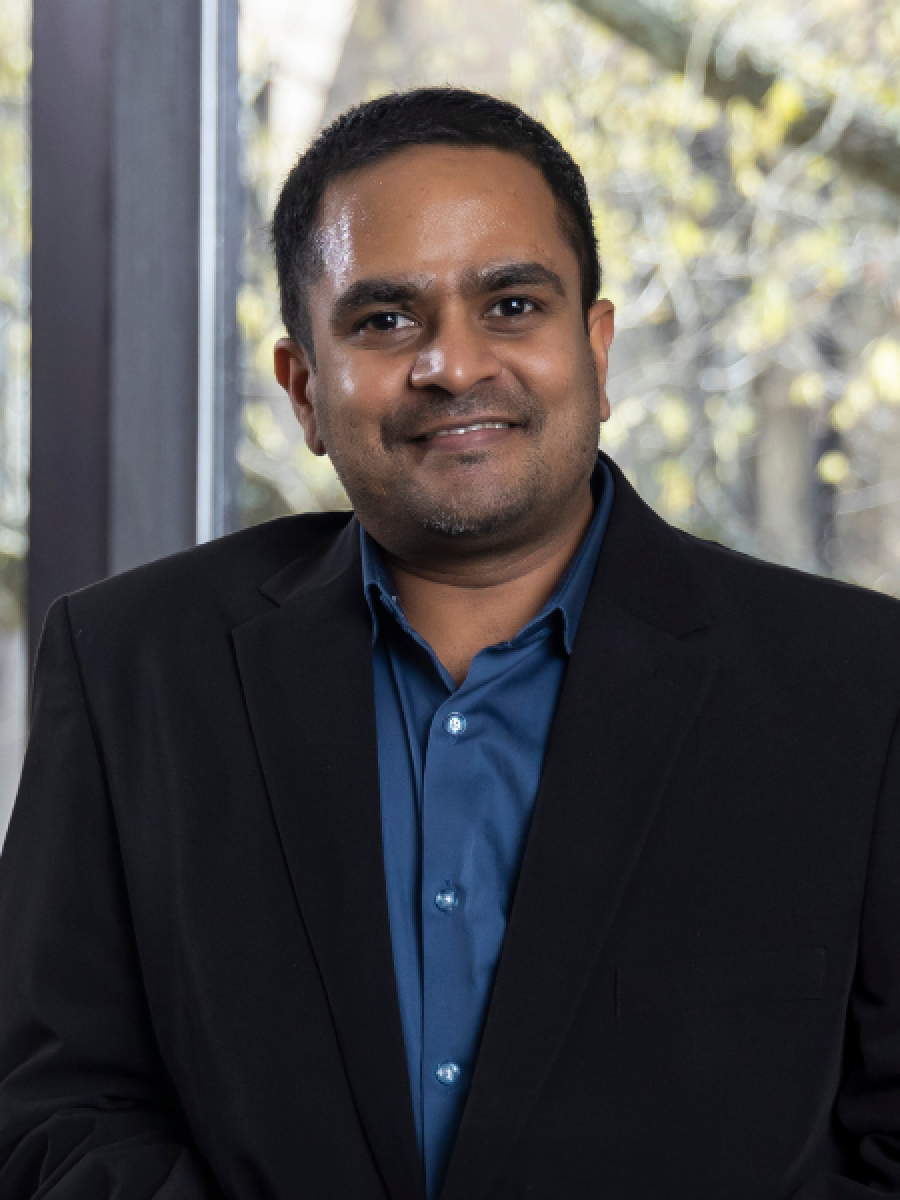
Venkata Pothula
LL.M. 2024
India
After earning his degree in law from the University of Delhi, Venkata Pothula LLM’24 worked his way up to becoming a senior litigation associate at V. Ramchander Goud & Associates in Hyderabad, India, practicing real estate law, property law, property dispute, public interest, and some environmental law cases. His environmental work piqued his interest so much that he decided to earn an advanced law degree to specialize in it.
Vanderbilt was one of Venkata’s top choices from the beginning, since it consistently ranks among the top environmental law schools year after year. “Coming here, I was able to get a larger picture with respect to climate change and the litigation that is going on in climate change environmental law,” he said. “I hope to utilize those skills back home in India and practice in environmental law litigation.”
One of the things that drew Venkata to Vanderbilt was the flexible curriculum, which allows LL.M. students to pick many of their classes, with approval from professors and the program director. Because of this flexibility, Venkata was able to take many courses related to environmental law, including a Robots, A.I., and the Law, Political Economy Regulatory Lab, Constitutional Law, climate change law seminar, clean energy transition law, and ELPAR. He also audited the private environmental law course. “It’s open to pretty much all the courses that are being taught to JD students, so that has been a very great advantage for me as an LL.M. candidate,” he explained.
Venkata also appreciated the opportunity to learn from so many experienced scholars in environmental law. “Vanderbilt has amazing professors who constantly deliver cutting edge scholarship on all different levels involving environmental law,” he said. “Professor Rossi’s amazing in energy law, and Professor Ruhl [teaches] climate change law and Law in 2050. There’s also Professor Vandenbergh, who is the most well-known scholar in private environmental governance in the country.”
In addition to his professors’ coursework, Venkata says that he also learned from the intellectually rigorous discussions he had with both his fellow LL.M. students as well as the J.D. students in his classes. The students’ diverse backgrounds sparked deep conversations about the law and how it should be applied. “Say, someone did economics, someone did philosophy or someone did literature. It’s amazing what their perspectives are with respect to the legal questions that are being discussed,” he said.
Looking ahead to the future, Venkata plans to return to India and open up his own independent practice in his hometown of Hyderabad. Within India and surrounding countries being so vulnerable to rising sea levels, he expects environmental law to become a major issue in the coming years, even though it doesn’t currently garner as much media and political attention. “Environmental law hasn’t been a major focus with respect to either firms or in public interest [in India]. There are a few organizations that do public interest work, but not many advocates who work in litigation work. So I want to focus more with respect to NGOs that are doing groundwork in the law and assist them in litigation,” he explained.
When asked what advice he would give to future LL.M. students, Venkata recommends reaching out to professors as soon as possible. “If anyone is choosing to come [to Vanderbilt] for the LL.M. program in environmental law, then I would advise them to connect with professors, especially Professor Vandenbergh and Professor Breggin, so that they can get a spot in ELPAR,” he said. “ELPAR is a very highly rated program, even for the J.D. students, so once the LL.M. students get into it, they get a huge opportunity to learn environmental law and policy in the U.S.”